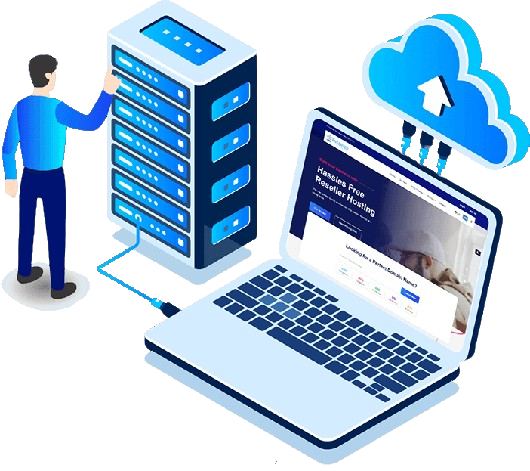General inquiries
New around here? Start with the basics.
VPC: Secure, scalable cloud infrastructure for isolated and efficient environments.


Build secure, isolated environments for your cloud resources. VPC networking provides granular control and flexibility for your cloud infrastructure.
VPC allows you to define private IP address ranges, create subnets, and implement security groups for robust network segmentation.
Isolate your cloud resources in a private network for secure access.
Easily scale your VPC network up or down as your cloud infrastructure grows.
Set private IP ranges, subnets, and security groups for a custom network.
Reduce latency and optimize network traffic flow within your VPC.
Pay only for used VPC resources, ensuring cost-efficiency.
VPC integrates seamlessly with cloud services for a unified environment.

New around here? Start with the basics.

Dive deeper into HostX's servers features.

We take security & privacy seriously.

Learn about plans, payments, and more.

Explore the basics of Virtual Private Cloud Networks.
Virtual Private Cloud (VPC) is a virtual network dedicated to your organization within a public cloud infrastructure, offering controlled access and enhanced security.
VPC provides enhanced security, network isolation, scalability, and flexibility in configuring your cloud environment, tailored to your specific business needs.
VPCs use security groups, network ACLs, and VPN connections to control access, encrypt data, and protect against unauthorized access, ensuring robust security measures.
Yes, VPCs support hybrid cloud architectures, allowing seamless integration with on-premises data centers via VPN or direct connect options, maintaining unified network management.
A VPC offers virtualized resources, scalable infrastructure, and centralized management compared to the hardware-centric, static configurations of traditional networking.
VPC costs are controlled through resource allocation, pay-as-you-go pricing models, and efficient utilization of cloud resources, ensuring cost-effectiveness and scalability.

Explore the advanced features of Virtual Private Cloud (VPC).
Key features include network isolation, enhanced security controls through security groups and ACLs, scalability, and seamless integration with other cloud services.
VPCs enforce security policies with features like private IP address ranges, network ACLs, and optional VPN connections for secure communication within and outside the cloud environment.
Yes, VPC configurations can be tailored with custom IP ranges, subnets, route tables, and gateway options, allowing businesses to meet unique operational requirements.
VPCs provide improved scalability, cost-effectiveness through pay-as-you-go pricing models, centralized network management, and seamless integration with cloud-native services.
VPCs support hybrid cloud architectures by enabling secure connections between on-premises data centers and cloud environments through dedicated VPN connections or direct connect options.
Automation tools streamline VPC deployment, configuration, and scaling processes, reducing manual intervention and ensuring consistency in network management tasks.

Ensuring robust security and privacy measures for your Virtual Private Cloud (VPC).
VPCs utilize security groups, network ACLs, and IAM roles to control access to resources, ensuring only authorized entities can interact with VPC components.
Yes, VPCs offer encryption capabilities to safeguard data integrity and confidentiality, applying encryption protocols for data transmission over the network and storage within the VPC.
Users should ensure VPC providers comply with privacy regulations such as GDPR, implement data anonymization practices, and offer audit logging to monitor access and usage.
VPCs support role-based access controls (RBAC) and API gateway policies to regulate external access permissions, enabling secure sharing of resources through authenticated and authorized mechanisms.
Yes, VPCs provide logging and auditing functionalities to track access attempts, modifications, and usage patterns, ensuring compliance with security policies and regulatory requirements.

Explore pricing options tailored for Virtual Private Cloud (VPC) deployments.
VPC pricing often involves charges based on selected instance types, network usage (bandwidth), and additional services like data transfer and storage capacity.
Yes, VPC providers often offer tiered pricing models that cater to varying levels of resource requirements, scalability needs, and additional features like enhanced security or management tools.
Yes, VPC pricing may encompass costs associated with data transfer between different geographic regions or availability zones, impacting overall expenditure.
Indeed, VPC costs may fluctuate based on factors such as the number of instances deployed, data processing demands, and the frequency of network interactions, reflecting adaptable pricing structures tailored to diverse operational scenarios.
Providers typically offer flexible payment options ranging from pay-as-you-go models to discounted rates for extended contractual commitments, ensuring scalability and cost efficiency aligned with specific business needs.
Yes, VPC pricing structures may be influenced by the physical placement of data centers, with variations in costs related to data storage, transfer, and compliance considerations across different global regions.